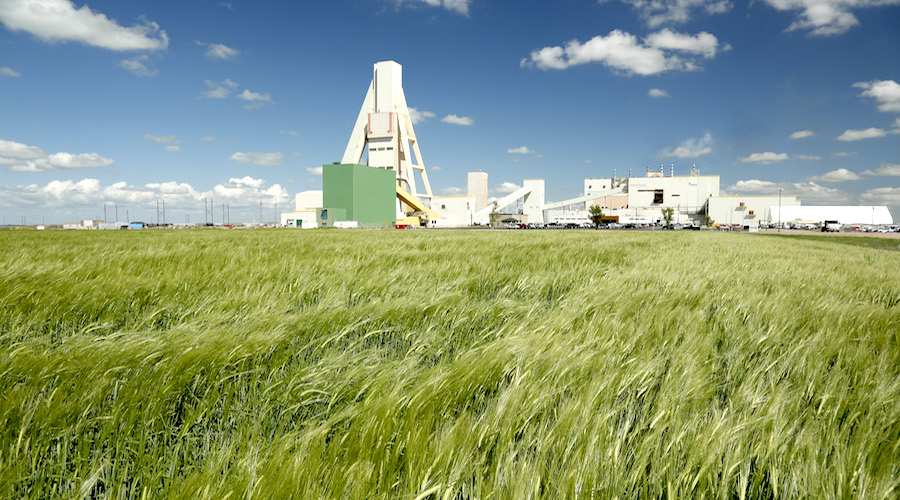Nutrien to further boost potash output amid Belarus sanctions

Western nations, including the European Union and Canada, hit Belarus with new sanctions Monday in a co-ordinated response to Minsk’s forced landing of a Ryanair plane last month to arrest a Belarusian journalist and opposition activist who was on board.
Western nations, including Canada, hit Belarus with new sanctions Monday in a co-ordinated response to the arrest of a a Belarusian journalist and opposition activist.
“We are united in our deep concern regarding the Lukashenka regime’s continuing attacks on human rights, fundamental freedoms, and international law,” governments of the US, Canada, UK and the EU said in a joint statement.
The sanctions include a ban on potash imports from state-owned Belaruskali, one of the world’s top producers, which generates about 20% of the fertilizer ingredient’s global supply.
“In response to continued tightening in global potash market conditions, we are flexing our low-cost network of six mines to draw upon our available capacity in a timely manner,” Nutrien said in the statement.
BMO’s fertilizers and chemicals analyst Joel Jackson says that while Nutrien cites continued tightening in global potash market conditions as the base of its production boost, he believes the move is about seizing on Mosaic’s issues and any fallout from sanctions against Belarusian potash.
“This is especially true if we find out later this week that Belaruskali can’t use its Lithuanian port, an outcome we are not sure about,” he wrote in a note to investors.
Strong prices
Potash prices have risen this year on tightening supply and growing demand, as rising crop prices are spurring farmers to use more fertilizer to maximize yields.
In early June, US potash miner Mosaic (NYSE: MOS) was forced to close its mines in Canada ahead of schedule because it could have put employees at risk. The move took one million tonnes of potash off the market.
The dwindling market spells good news BHP (ASX, LON, NYSE: BHP), which is expected to make a development decision on its giant Jansen project in Canada over the summer, with Nutrien potentially coming in as a project partner.
Jackson says the bank now expects average potash prices to between $25 and $70 per tonne, with the largest increases in Americas potash and Tampa DAP estimated in $35 to $45 per tonne. “While we don’t see spot Brazil potash, NOLA urea, and Tampa DAP holding $500/t, $450/st or $660/t (all decade highs), we see prices still ending 2021E strong with Q4E averages of $425/t, $330/st and $520/t respectively,” he wrote.




